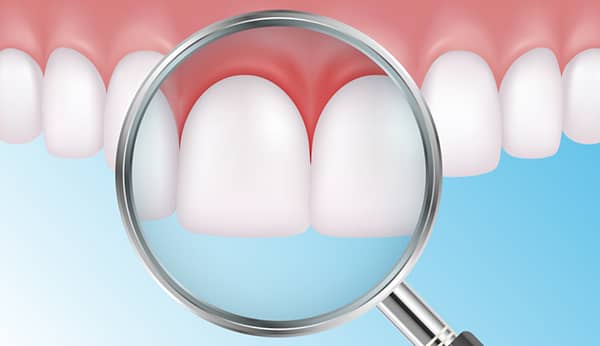
6 Common Gum Disease Myths
Even though everyone has a chance of getting gum disease, many people neglect their oral health and skip their monthly dental visits. The gums may suffer as a result, which is unfortunate. A portion of this is attributable to the persistent misconception regarding the periodontal disease that is spread across society. Be cautious to avoid believing these six popular myths to ensure that your gums remain healthy.
Gum disease: what is it?
Gum disease, to put it simply, is a disorder that appears along and beneath the gum line and is brought on by plaque buildup. One of the most common gum disease symptoms is that your gums will gradually get sore and bleed, and occasionally they may become infected, due to the germs that are packed inside the sticky film of plaque.
Gingivitis, another name for gum disease, can progress into periodontal disease if left untreated. The gums are bleeding and irritated at this point, and they may even have an impact on blood pressure. Gum disease can worsen over time to the point that the jaw and surrounding bones start to deteriorate.
Here are six widespread misconceptions about gum disease:

-
You’ll be aware if you have gum disease, right?
Inflammation, bleeding, and poor smell are signs of the early stages of gum disease, which is brought on by bacteria and plaque accumulation under the gum line. The infections can also get into the bloodstream, where they can cause a variety of additional health issues. Sometimes it might be challenging for an unskilled practitioner to recognise the signs of gum disease.
Because gum disease can be mostly asymptomatic and many individuals are unaware they have it, it is sometimes referred to as the “silent illness.” Visit your dentist at least once every six months as a result, as this is the greatest approach to guarantee that you do not develop gum disease.
-
Patients who have gum disease are likely to lose teeth
Due to the inherent differences among gum disease patients, each patient’s specific situation will also vary. Despite the possibility, extensive gum disease does not always result in tooth loss. With good treatment and early identification, you can avoid tooth loss as well as other dangerous side effects. Your dentist can create a treatment plan to help you keep gum disease under control, even if it has been identified.
-
Gum disease may be indicated by bad breath
It’s critical to identify the root of the issue since gum disease and other oral disorders might be indicated by persistent foul breath or a terrible taste in your mouth. Make an appointment with your dentist if you have foul breath all the time.
Since poor breath might be a symptom of a medical condition, routine checks allow your dentist to identify any issues. Your dentist could send you to your primary care physician if they find that your mouth is healthy.
-
Do only sick people have gum disease?
Most people have the idea that gum disease primarily affects people with really bad oral hygiene or major medical issues. The likelihood of developing gum disease can be affected by a variety of external circumstances, therefore this is not always the case.
The health of your gums can be impacted by a variety of factors, including smoking, stress, and even heredity. This implies that even if you seem to be in excellent condition, you might nevertheless have gum disease.
-
Periodically bleeding gums are common
Many individuals tend to think that bleeding gums are just a result of using too much force when flossing or brushing. It is an indication of gingivitis, the early stage of gum disease if your gums bleed when you brush or floss your teeth.
In light of this, it is important to see a dentist as soon as you see any blood in your saliva after brushing or if your gums appear red and irritated. By taking extra precautions when cleaning and flossing your teeth, you may help prevent this problem. For prevention, your dentist could suggest scheduling cleanings more frequently.
-
Gum disease is caused by cavities
Your gums may not be completely healthy even when your teeth haven’t been harmed by decay. Even though they are connected, tooth and gum health does not always affect one another. Having strong, cavity-free teeth is not a need for having sensitive, inflammatory, or bleeding gums. The major cause of gum disease is the accumulation of plaque and tartar on your teeth.
They cause gum inflammation and an infection known as gingivitis, which, if unchecked, can develop into periodontal disease. Because of this, it’s crucial to have your dentist evaluate your gums to make sure your dental health is in good shape.
Also Read: – Dental Myths and Misconceptions
Conclusion
Be calm if you suspect that you may have gum disease. Without invasive operations and other gum disease treatments, periodontal disease can be treated. Have more inquiries? Get advice from a professional. Clove Dental is recognised as the leading expert in gum disease. They will make sure that all of your worries are carefully attended to.
DISCLAIMER:Please note that the prices mentioned on this page: (a) present a range (depending upon the severity of the dental condition, the technology used in treatment, type of dental products used, etc.); (b) are true as on the date of this page and may change on a later date, in accordance with the standard company policy; (c) may be subject to standard aberrations or generalizations on account of the use of AI in general Google/internet search by you.Leave a Reply
Leave a Reply
Explore More Similar Posts
Explore More Blogs


Leave a Reply